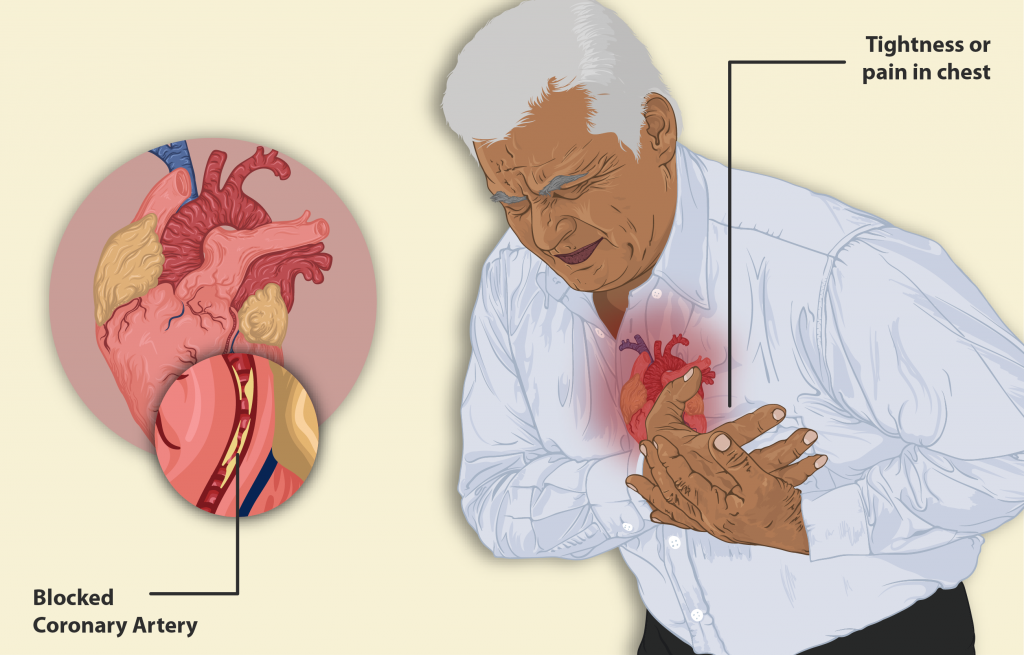Interventional Cardiology is a subspecialty of cardiology that relies on the use of specialized imaging, minimally invasive procedural methods, medications, and more in order to diagnose and treat abnormalities within the cardiovascular system.
Interventional Cardiologists typically use minimally invasive procedures, like balloon angioplasties/stents, to treat patients.
What does interventional cardiology treat?
The health of your arteries, veins and valves are common concerns and focuses for interventional cardiologists. If a patient suffers from clogged arteries, plaque build-up, and other facets of coronary artery disease (ischemia), interventional cardiology will be used to treat them.
What is coronary artery disease?
Coronary artery disease is the leading cause of death in the United States, regardless of race and sex. It is caused by a build-up of plaque in the walls of the arteries. Plaque is mainly composed of small deposits of cholesterol that grow larger over time.

Although no one can completely prevent plaque build-up, measures can be taken to prevent blocked arteries. To reduce the chance of contracting coronary artery disease, you should:
- Watch your diet. Foods that contain high sugar and saturated fat content, like cakes and fatty cuts of meat, will contribute heavily to cholesterol build-up in the arteries. You should strive for a healthy, balanced, diet. This includes eating foods high in unsaturated fat, which has been shown to reduce blockage in arteries. Sticking to a balanced diet will also help keep your weight, blood pressure, and diabetes to a manageable level.
- Keep yourself physically active. A consistent exercise schedule is a good way to ensure that you keep yourself active. Walking or jogging 30 minutes daily can keep cholesterol at a healthy level. Swimming is recommended for patients who suffer from joint pain, or do not enjoy walking or jogging. Finding an aerobic exercise that you can enjoy, such as dancing or cycling, can help you establish and stick to a healthy routine.
- Stay away from alcohol and tobacco. Having more than 3 alcoholic drinks a day, or being a smoker, increases your risk of contracting coronary artery disease two to four-fold.
- Most importantly, listen to your cardiologist. Every patient is unique. While we can recommend best practices for reducing the risk that coronary artery disease presents, your cardiologist will know best for your individual case.
Tools used in interventional cardiology
Interventional Cardiologists use a variety of tools to diagnose and treat patients. Catheters and stents are tools most commonly used by interventional cardiologists to treat cardiovascular abnormalities.
- Catheter: A long, narrow, and hollow tube that is usually inserted into the patient in a minimally invasive manner. Catheters are used for a variety of medical reasons. In interventional cardiology, catheters may be used to check for disease (cardiac catheterization), measure blood pressure and flow, and perform angioplasty among other things.
- Stent: A small metal or plastic tube that is placed in a blocked artery to restore blood flow. Stents may be used in emergency procedures in order to keep blood flowing.
Interventional cardiologists may also order diagnostic or specialized imaging of your cardiovascular system in order to evaluate your cardiovascular health.
Procedures done by interventional cardiologists
Interventional cardiologists typically use a minimally invasive approach when treating cardiovascular abnormalities. If an incision is necessary during a procedure, it will generally never exceed an inch in circumference. Examples of procedures that our interventional cardiologists undertake on a daily basis may be:
- Cardiac Catheterization: A procedure that involves the insertion of a catheter to check for cardiovascular abnormalities and disease.
- Angioplasty/stenting: A type of procedure where a stent is placed inside an artery or vein in order to promote blood flow.
- Balloon Angioplasty: A certain type of angioplasty where a small balloon is placed in the affected artery or vein. The balloon works to compress plaque against the artery wall, creating space for blood to flow through. The balloon is removed after the procedure is finished.
- Atherectomy: A procedure that focuses on eliminating and eradicating plaque in the arteries or veins.
- Percutaneous Valve Repair: The heart consists of four valves that control blood flow through the body. This procedure works to repair a damaged valve.
These are only some of the procedures that our interventional cardiologists handle on a day-to-day basis. As medical technology continues to advance, interventional cardiology will grow to be a less invasive, more efficient, subspecialty of cardiology. Our staff takes care to stay up to date with all recent medical developments.
What are interventional cardiologists?
An interventional cardiologist is a cardiologist who has a special interest, and has undergone extensive training, in treating coronary artery disease. To become an interventional cardiologist, you must complete undergraduate school (3-4 years), medical school (4 years), an internal medicine residency (3 years), a cardiology fellowship (3 years), and a one to two-year fellowship in interventional cardiology.